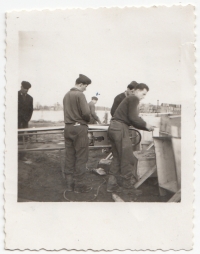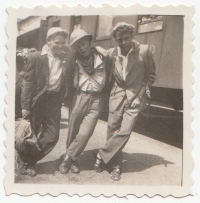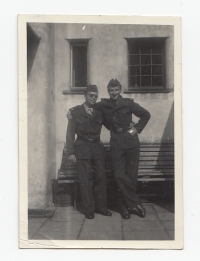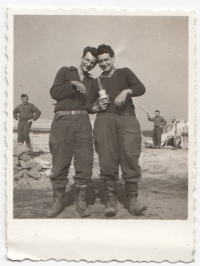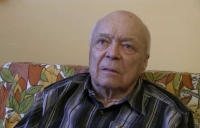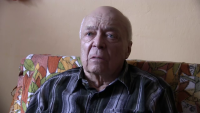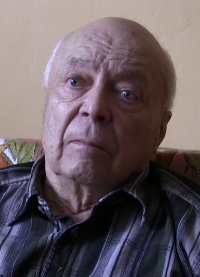Under the impression of conversations with Volhynian Czechs, they founded an illegal group
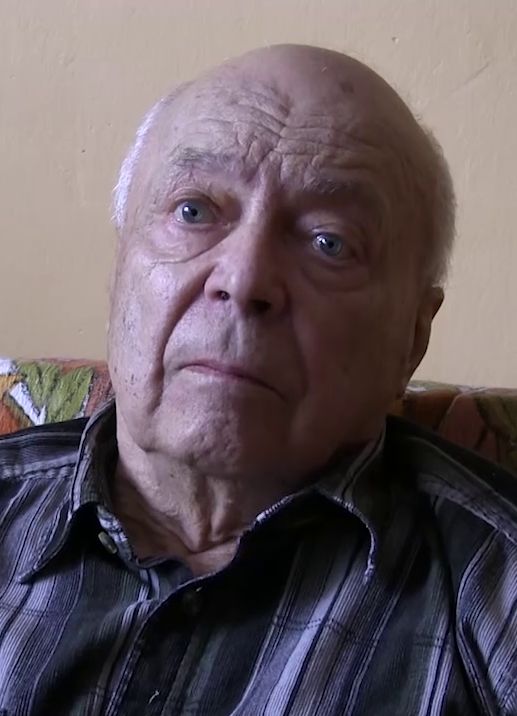
Download image
Jan Strnad was born on 22 February 1931 in Panenský Týnec. His father was a grain merchant, his mother took care of the household, his older brother graduated from a business academy and became an accountant. The family survived the war without serious consequences, although during the liberation of Panenský Týnec there was heavy fighting between the Red Army and the Wehrmacht over ammunition stores. Jan Strnad grew up in a family oriented towards patriotism and belonging to the National Socialist Party. His grandfather was a legionnaire, and they all regularly attended Sokol. After completing municipal school, he entered business school in Slaný in 1946. However, due to health problems he had to interrupt his studies for a year. After his recovery, he transferred to the business school in Postoloprty, where he lived in a dormitory for a week. At this school he met young Volhynian Czechs who told him and other like-minded classmates about the real conditions in the Soviet Union, from where they had immigrated to Czechoslovakia. Impressed by their stories of their experiences with the Bolshevik terror, the famine in Ukraine and the forced collectivisation, the classmates formed an illegal group. After February 1948, the group influenced the surrounding population through anti-communist leaflets. Strnad supplied the membranes for printing the leaflets, as his father owned a duplicating machine. However, he was also involved in collecting addresses and writing addresses on envelopes. The Postoloprty group had eight members, but was connected to the much larger group from Žatec. All of them were discovered by State Security because of a British intelligence agent who was arrested at the border and had a list of names of members of both groups. Jan Strnad and his friends were arrested on 19 November 1948, at the boarding school. He was taken blindfolded to the local police station and then to Most. In the prison there, an interrogation took place, which was accompanied by physical violence and limited food rations. The public trial of the thirty defendants took place on 22 June 1949 at the State Court in Prague. Twenty- and fifteen-year sentences for subversion of the republic were pronounced. Strnad was given seven months as a juvenile, and due to the time he spent in custody, he was set free by the court. At the intercession of the director, he was able to finish his studies at the business school in Postoloprty. He then started his military service and spent 27 months working manually for the Auxiliary Engineering Corps (PTP) in various parts of Czechoslovakia. After his return he could not find employment for a long time due to his criminal record. He worked as an auxiliary labourer at the Prefa National Enterprise, at the ČKD Slaný, and later as a dispatcher of grain purchase transport. He retired from his position as a driller at Pragovka. Jan Strnad married and had two children. In October 1990, the Regional Court in Ústí nad Labem overturned the 1949 judgment of the State Court in Prague. Jan Strnad was awarded as a participant of the anti-communist resistance.
